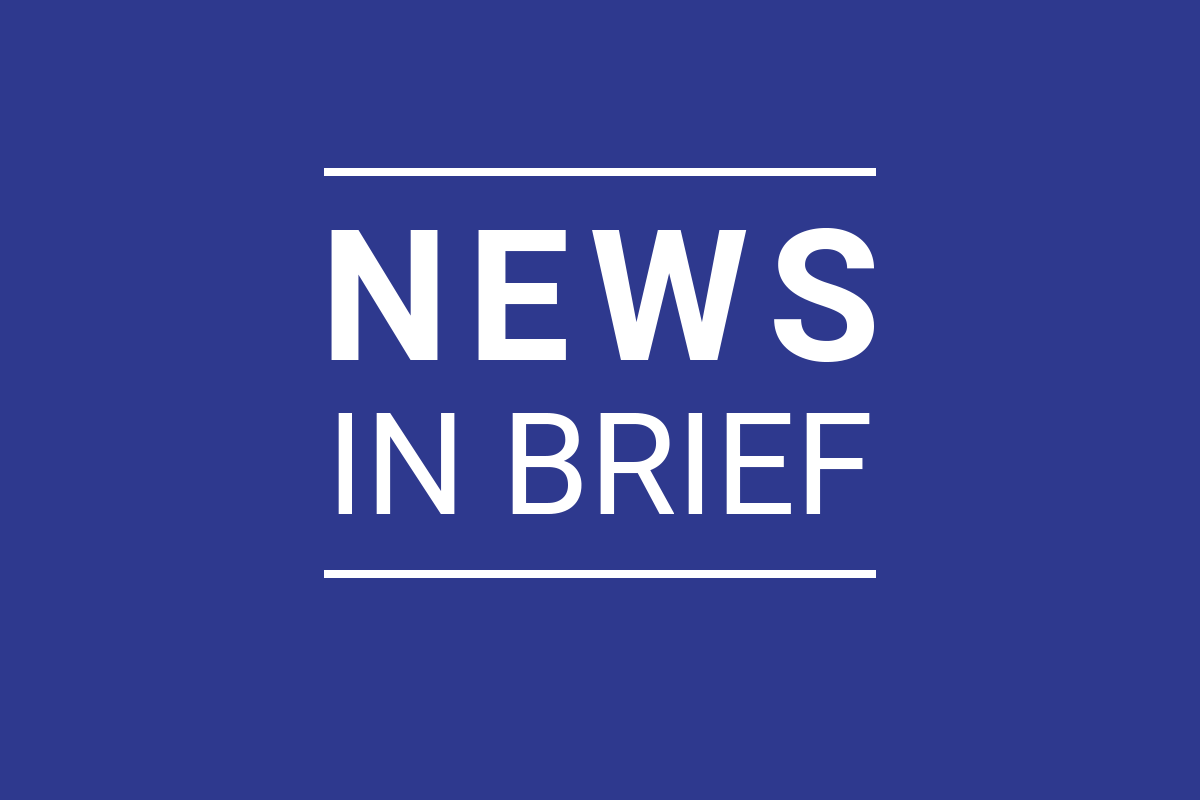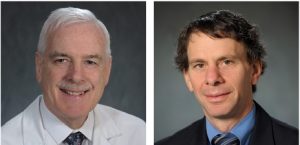
Now Enrolling: EA7222 for Patients with Advanced Soft Tissue Sarcoma
June 13, 2024
News in Brief, June 2024
June 11, 2024From the Co-Chairs, May 2024


By Peter J. O’Dwyer, MD (left)
and Mitchell D. Schnall, MD, PhD
Several years ago, we reinforced our commitment to improving outcomes for patients with sarcoma by establishing a formal Sarcoma Working Group, led by Dr. Kenneth Cardona. The group launched their first trial, EA7211/STRASS 2, last summer. STRASS 2 is the second randomized trial ever performed in retroperitoneal soft tissue sarcoma and, importantly, represents a collaboration between ECOG-ACRIN, the National Cancer Institute, and the European Organization for Research and Treatment of Cancer (EORTC). Now, the Sarcoma Working Group is poised to open their second trial, an important phase 3 study for patients with advanced undifferentiated pleomorphic sarcoma. We applaud this group for their productivity and their efforts seeking novel approaches for patients with this rare disease.
We also draw your attention to the need for MSI testing in all new patients with gastroesophageal cancer. Dr. Lakshmi Rajdev provides a detailed analysis of the importance of this testing especially in light of the opportunity provided by EA2212 which compares chemotherapy with atezolizumab versus atezolizumab alone in operable patients with MSI-H tumors. This trial has the potential to set a new standard of care in these patients, and brings personalized therapy to patients with the potential for substantial benefit.
As we write, the in-person Spring Group Meeting in Baltimore is ready to begin. Those interested in cutting-edge approaches suitable for new clinical trials will find much to whet that appetite. Novel surgical approaches, targeted radionuclide therapies (theranostics), and drug sensitivity technology are all on the agenda for the Comis Translational Science Symposium. In this session, as well as in a newly-designated Clonal Hematopoiesis Working Group, genomic research in this area will complement the cardio-oncology advances made by Dr. Bonnie Ky and colleagues.
At this meeting also, you will see the fruit of presentations at two previous Comis Symposia focused on Real-World Data. The premise here is that we do not currently have a way to determine the impact of our positive clinical trials on the population at large. The NCTN grant does not fund registry trials, and so different approaches to funding are needed. Our initial study in this arena (funded by a grant from the FDA) is about to be activated, and the details of this lung cancer study will be presented at the Real-World Data Committee. These are studies of outcomes of standard treatments, designed to be simple with limited data collection, and relevant for community sites especially. They are patient-centric, with patient-reported outcomes and documentation of toxicity as key elements. To participate in these trials please let us know, either at or after the meeting. We expect a series of studies to build on this experience, incorporating epidemiological endpoints, ultimately to replace the low-impact, rarely-published phase 4 trials with more meaningful designs.
After our Group Meeting concludes, the spring conference season continues in full force with ASCO in early June. ECOG-ACRIN will be well represented. A few highlights include late-breaking data and AI in prostate cancer; long-term results with less radiation in head and neck cancer; optimal chemotherapy for Black women with breast cancer; and results from the first randomized national trial in older adults with pancreas cancer. As usual, ASCO represents an ideal opportunity for ECOG-ACRIN investigators to connect with industry colleagues, and we look forward to productive discussions as we plan future projects. See you this week in Baltimore—or in June in Chicago!
Read the May 2024 issue here.
![ECOG-ACRIN logo[19516]275×75](https://blog-ecog-acrin.org/wp-content/uploads/2021/03/ECOG-ACRIN-logo19516275x75.png)
